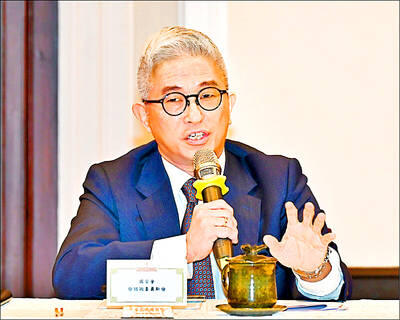Leaders of India, Pakistan and five other South Asian nations signed a draft agreement vowing to slash trade barriers starting from 2006, to boost growth in a region that is home to half the world's poor.
South Asian Association for Regional Cooperation countries, which also include Sri Lanka, Nepal, Bangladesh, Bhutan and the Maldives, also agreed to all but eliminate tariffs by 2016. That would bring to fruition the idea of a South Asian Free Trade Agreement that was envisaged in 1985, when the group was formed.
South Asia, home to a quarter of the world's people, is moving to emulate ASEAN and the EU. Trade between ASEAN nations makes up 63 percent of Southeast Asia's trade and intra-EU trade accounts for two-thirds of the trade of the 15 EU countries.
Trade among South Asian countries, 70 percent dominated by India, is barely 5 percent of the region's total.
"We have finally come to accept that if we do not close ranks our peoples will sink deeper into poverty and our countries will continue to suffer the consequences of discord and weakness in the fiercely competitive world," Bhutan's Prime Minister Lyonpo Jigmi Thinley said.
The signing ceremony, broadcast by Pakistan Television, came at the end of 12th SAARC summit in Pakistan's capital, Islamabad.
Under the planned trade agreement India, Pakistan and Sri Lanka, the region's largest economies, have until the end of 2012 to reduce tariffs to between zero and 5 percent.
Bangladesh, Bhutan, Nepal and the Maldives have until 2016.
Each country will be able to maintain a "sensitive list" of products on which tariffs won't be reduced.
"The accord will open up markets such as Pakistan that are not available today," said Sanjiv Bajaj, vice-president in charge of finance at Bajaj Auto Ltd, India's No. 2 motorcycle maker. "With duties coming down, our products would be cheaper in the other countries like Bangladesh."
Trade among the seven countries, home to more than 1.5 billion people, is an annual US$4 billion and may rise to US$14 billion once restrictions are removed, the Federation of Indian Chambers of Commerce and Industry estimates.
India has a free-trade agreement with Sri Lanka and open borders with Bhutan and Nepal, while Pakistan is negotiating free-trade deals with Sri Lanka and Bangladesh.

A car bomb killed a senior Russian general in southern Moscow yesterday morning, the latest high-profile army figure to be blown up in a blast that came just hours after Russian and Ukrainian delegates held separate talks in Miami on a plan to end the war. Kyiv has not commented on the incident, but Russian investigators said they were probing whether the blast was “linked” to “Ukrainian special forces.” The attack was similar to other assassinations of generals and pro-war figures that have either been claimed, or are widely believed to have been orchestrated, by Ukraine. Russian Lieutenant General Fanil Sarvarov, 56, head

SAFETY FIRST: Double the number of police were deployed at the Taipei Marathon, while other cities released plans to bolster public event safety Authorities across Taiwan have stepped up security measures ahead of Christmas and New Year events, following a knife and smoke bomb attack in Taipei on Friday that left four people dead and 11 injured. In a bid to prevent potential copycat incidents, police deployments have been expanded for large gatherings, transport hubs, and other crowded public spaces, according to official statements from police and city authorities. Taipei Mayor Chiang Wan-an (蔣萬安) said the city has “comprehensively raised security readiness” in crowded areas, increased police deployments with armed officers, and intensified patrols during weekends and nighttime hours. For large-scale events, security checkpoints and explosives

‘POLITICAL GAME’: DPP lawmakers said the motion would not meet the legislative threshold needed, and accused the KMT and the TPP of trivializing the Constitution The Legislative Yuan yesterday approved a motion to initiate impeachment proceedings against President William Lai (賴清德), saying he had undermined Taiwan’s constitutional order and democracy. The motion was approved 61-50 by lawmakers from the main opposition Chinese Nationalist Party (KMT) and the smaller Taiwan People’s Party (TPP), who together hold a legislative majority. Under the motion, a roll call vote for impeachment would be held on May 19 next year, after various hearings are held and Lai is given the chance to defend himself. The move came after Lai on Monday last week did not promulgate an amendment passed by the legislature that

PENTAGON ASSESSMENT: A US report said that even as China and Russia deepen their partnership, cooperation is hindered by a ‘mutual distrust’ of each other The Chinese People’s Liberation Army (PLA) as of October had doubled the number of ships and airplanes deployed around Taiwan compared with the previous two years, Vice Minister of National Defense Hsu Szu-chien (徐斯儉) said yesterday, a day after the opposition-controlled legislature voted against reviewing the government’s general budget for next year, including a NT$1.25 trillion (US$39.71 billion) special defense spending bill. The legislature’s vote against the Ministry of National Defense’s spending plans was regrettable, as the budget was designed to respond to the developing Chinese military threat, Hsu said on the sidelines of a legislative meeting on the general budget. Defense